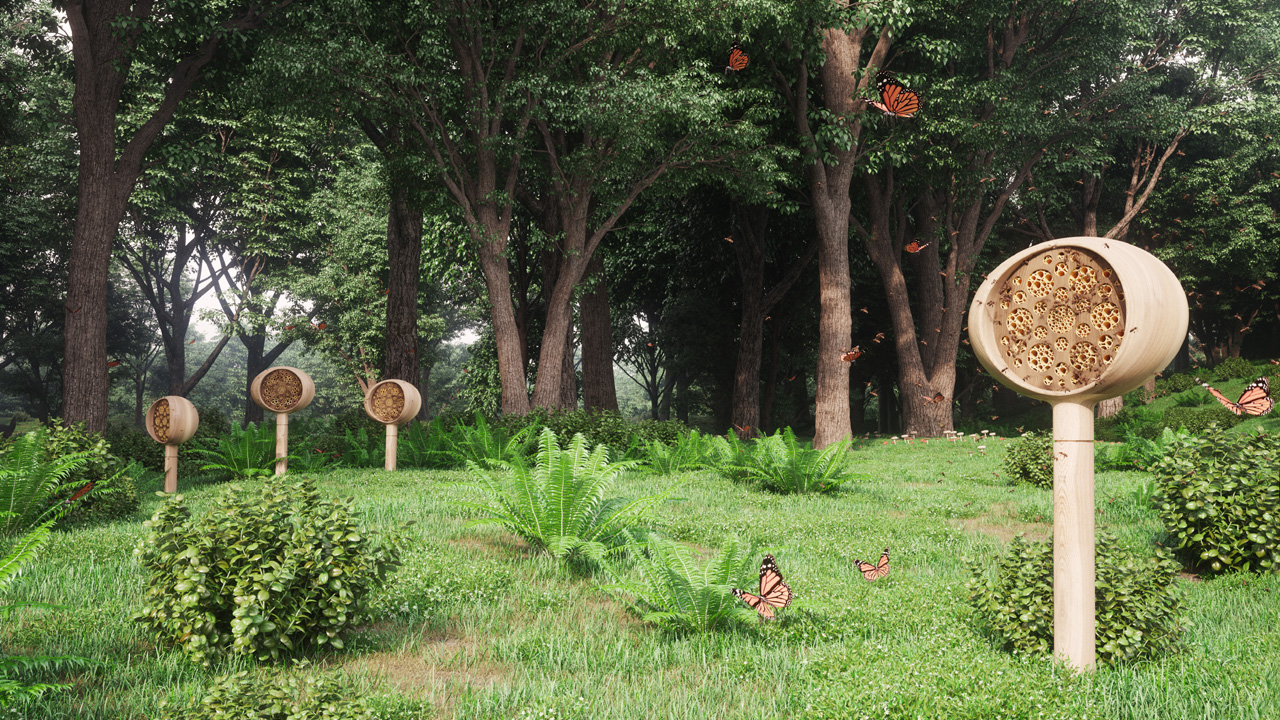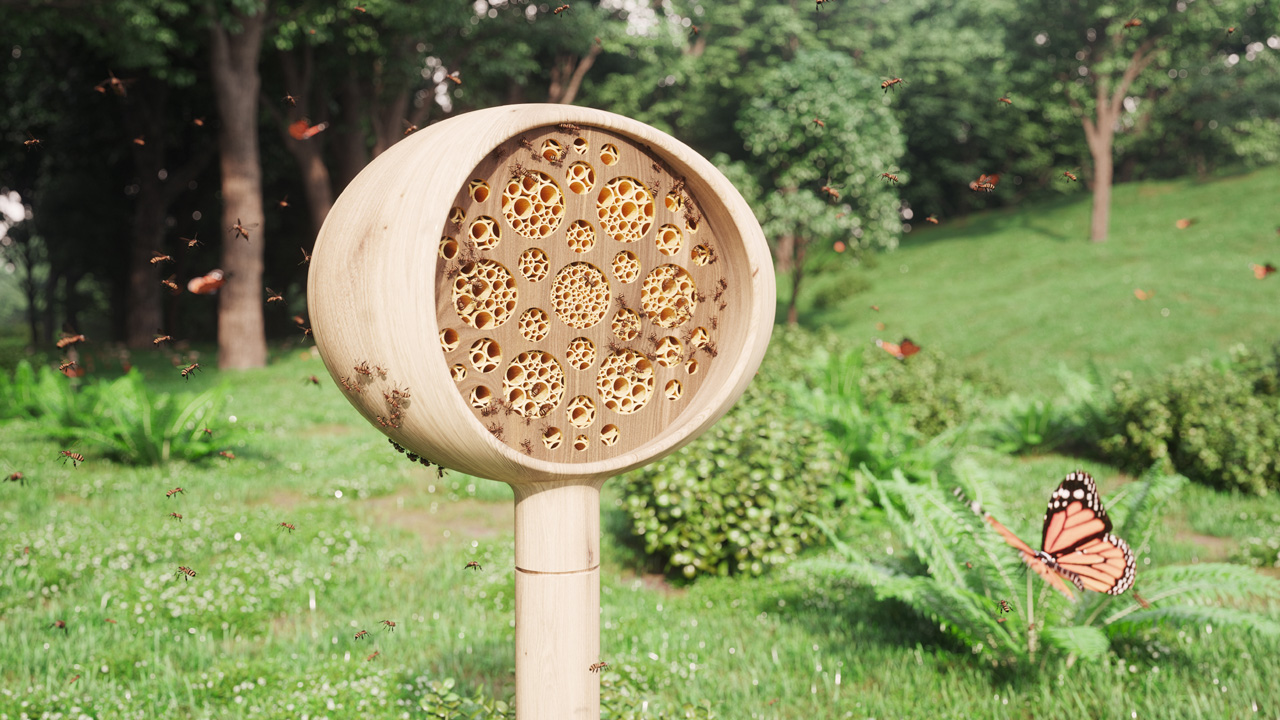

TreeHive
Paulownia Bee HotelDate: 2022
Location: Torino (Italy)
Project: Giancarlo Zema Design Group
Client: EcoLandLife
Consultants: Paulownia4Planet
Status: Realized
EcoLandLife launches the TreeNest + TreeHive project for the creation of hundreds of Bird Houses and Bee Hotels made of Paulownia wood for the protection of biodiversity and the preservation of ecosystems. EcoLandLife, a brand that deals with ecological habitats, is launching this poetic environmental support project in partnership with Paulownia4Planet and with the Paulownia Piemonte Association, which have been committed every day for more than twenty years in the forestation of Paulownia woods, the tree that absorbs more CO2 in the world, about ten times more than ordinary trees. Our dream has always been to plant thousands of trees in the shortest possible time to give oxygen to our planet and provide our trees with beautiful and comfortable homes to welcome migratory birds and pollinating insects. In fact, migratory birds are less and less due to the rise in pollution levels and the decrease in rest areas and safe shelters. Same situation for bees and other pollinating insects who are dying at a worrying rate and often in absolute silence. Yet the role they play in safeguarding biodiversity and preserving ecosystems is fundamental. For the creation of a Bird House and a Bee Hotel made of Paulownia wood, we at EcoLandLife asked the architect. Giancarlo Zema, famous for his eco-sustainable projects, to give shape to our environmental wishes. We wanted a high-end design, almost luxury objects, because today true luxury is being 100% eco-sustainable. The inspiration for the creation of TreeNest and TreeHive comes from the observation of nature and in particular from the curiosity for the “lignicolous mushrooms” of trees that are born and grow on trees and on their roots with soft and tapered shapes. TreeHive, the first beehive of Design in Paulownia wood that is planted in the ground, with which it will be possible to obtain an ideal place in the woods and in one’s own gardens to safely welcome pollinating insects. Here, solitary bees, butterflies, bumblebees and ladybirds find a suitable nesting space. Furthermore, by means of a sophisticated but discreet miniaturized technology, the hive will be equipped with an HD video camera, connected wirelessly to remotely monitor the activity status and well-being of the insects.
